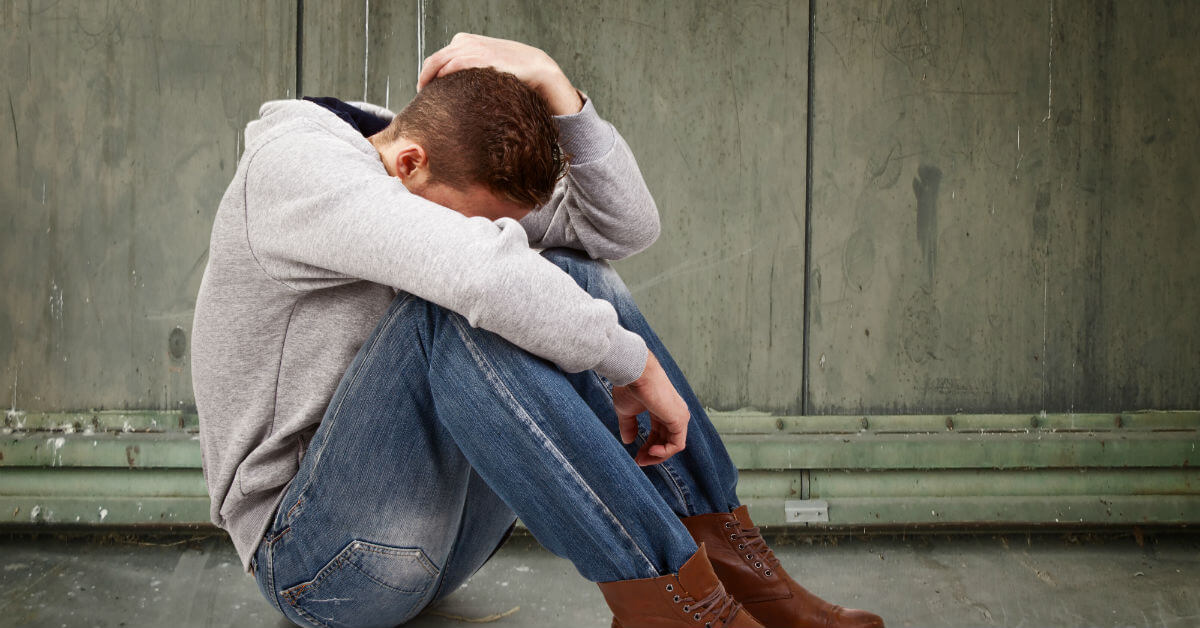No parent is truly ever prepared to see their teen erupt in violent behavior. Whether the angry behavior is being expressed at school or home, or both, it can lead to a world of confusion and questions for parents who now need to navigate life with a teen prone to anger and violence.
It can be tempting to let much of the behavior slide so long as no one is getting hurt. If your teen is punching holes in the walls, throwing things around the house, throwing things at their siblings, or just screaming with rage, this may not seem as bad as it could be.
The problem is that ignoring this kind of behavior won’t help your teen at all. It also puts him at risk of seeing his behavior escalate with time. Your teen may become an adult prone to angry and violent outbursts. The world will have a completely different approach to his behavior as an adult.
What could be triggering this behavior?
The first question you’re likely to ask yourself when your teen begins to act out and behave with violence is just what is behind it. It could be that the violence has been something in progress for some time, but you haven’t noticed it until it reached a tipping point.
It could be that the violent behavior erupted overnight after something triggered it. There could be many things triggering or contributing to violent behavior, including:
- Issues within your family could be triggering outbursts. Perhaps there’s a divorce looming or an increase in tension between parents. Or maybe a blended family is leading to uncomfortable feelings, and your teen doesn’t know how to cope.
- Your teen is struggling with mental health. Whether concerns with self-harm, anxiety, depression, bipolar disorder, or something else yet to be diagnosed, your teen may be trying to find the best way to cope. Without the right coping tools, your teen could be lashing out at those around him.
- Is it possible that your teen is the victim of bullying? Whether your teen is being bullied at school, at football practice, or perhaps online, it could be leading to his inability to cope in a healthy manner. He may lash out with violent behavior because he’s feeling backed into an emotional corner, he’s frustrated, and he doesn’t know how to best cope.
- Substance abuse, whether drugs or alcohol, can also play a key role in angry outbursts from teens. These substances can alter behavior in extreme ways. There’s often no way to tell how someone will respond until you’re faced with it.
No matter what the triggers to your teen’s anger and violent outbursts, it’s important that you reassure them that they are loved and supported without condition. You may not like them and their angry behavior very much, but you will always be in their corner as they face the struggles in their life.
What steps can you take at home?
When confronted with an angry teen who may be acting out with violence, you may be at a loss as to what to do with him at home.
You can take several steps to help restore peace in your home, including:
- With his triggers identified, get sure that you’re getting your teen the professional help and guidance that he needs.
- Before you take any other steps, it’s important to ensure that everyone in your family is safe and protected. If your teen is punching holes in the wall or hitting his head against the wall, he may be injuring himself. Get him the medical treatment he needs. Younger siblings may become the target for your angry teen, as may your family pets. Remove them from the home when things begin to reach a tipping point. Safety should always be your priority.
- Ensure you have a good family schedule and routine in the home. Every child or teen should be treated in the same age-appropriate way.
- Keep communication open. Remind your teen that your door is always open if they need to talk or be heard.
- Remind yourself that this is not your fault, nor is it the fault of your parenting partner.
- Don’t take it personally when your teen turns his anger in your direction. You make a convenient target being so close to him.
- As tempting as it can be, don’t ignore your son’s behavior.
If you can minimize some of his potential triggers, you’ll be in a better position to keep everyone safe as he works through his problems.
What steps can you take to help your teen?
Gone are the days when helping your teen with some type of pain was limited to a brightly colored bandaid.
Teens in crisis and otherwise struggling with their anger will need a more serious solution to help them to heal.
- As already mentioned, your teen can benefit from professional help and treatment. Not only will a mental wellness professional be able to offer the correct diagnosis, but you’ll find that they can also share a wealth of options for treatment to meet the needs of your teen.
- Acknowledge how your teen is feeling. Even if you disagree with the anger, it doesn’t mean that it’s not something you can acknowledge. Let your teen know that you understand he feels angry, but he can talk to you about it and worth through it, rather than lashing out with violence.
- Be sure that you’re aware of how you’re responding and reacting when you’re faced with conflict within your family. Are you inadvertently making the situation worse by yelling or showing your anger and aggression? Take a moment, step back from the situation, take a breather. It may be helpful for you to get yourself therapy and other treatment options so you can learn how to handle your anger and your response to conflict.
- Just as giving yourself a bit of space from the situation can help you, it can help your teen when he’s in the midst of an angry outburst. Only once he’s calmed down can you then have a rational conversation.
- It’s not a good idea to strike back at your teen if he hits you. This will only reinforce that violence is an acceptable way to solve a disagreement or anger.
Should you call in the authorities?
No parent wants to see their teen getting into trouble with law enforcement. That said, you deserve to feel safe in your home. Every member of the family deserves to feel safe. If your physical safety is at risk, or you think your teen may harm himself, you shouldn’t hesitate to call in reinforcements.
Police officers are often trained to handle domestic disputes without the focus being on arresting someone. They may prefer to identify the situation, diffuse an angry situation, and provide resources to help everyone get the help they need.
You don’t need to face an angry and aggressive teen on your own. Several resources are available to help you and help your teen, including therapeutic boarding schools.











0 Comments